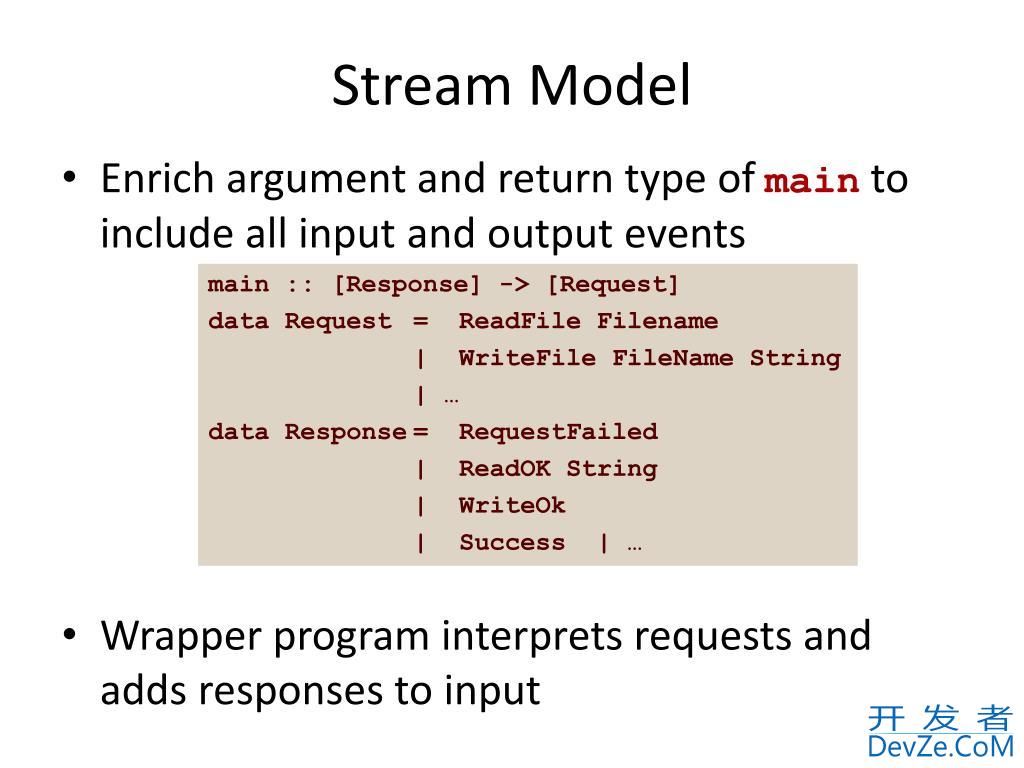I have a function that has a return type of Maybe ([(Int,Int)],(Int,Int)) I would like to call this from another function and perform an operation on the data.
This is how the Cont monad is defined: newtype Cont r a = C开发者_JAVA百科ont { runCont :: (a -> r) -> r }
If I define the \"bind\" function like this: (>>开发者_开发问答;=) :: M a -> (a -> M\' b) -> M\' b
In chapter 15 of Rea开发者_如何学Pythonl World Haskell, a type class is defined: class (Monad m) => MonadSupply s m | m -> s where
UPDATE: Okay this question becomes potentially very straightforward. q <- mapM return [1..] Why does this never return?
This question already has answers here: Closed 11 years ago. Possible Duplicate: What is a monad? How would you describe a monad in non-programming terms? Is there some c开发者_运维问答o
We\'re working on a model filesystem that uses a state monad internally.We have a type class with operations like these:
I\'m on the I/O chapter of Real World Haskell.Monads aren\'t discussed in the book for another 7 chapters.Which is to say, my understanding of I/O is, at best, incomplete.

After touching on Monads in respect to functional programming, does the feature actually make a language pure, or is it just another \"get out of jail free card\" for reasoningof computer systems in t
we are trying to build the Haskell-MaybeMonad sample from http://www.haskell.org/all_about_monads/html/maybemonad.html in F#.